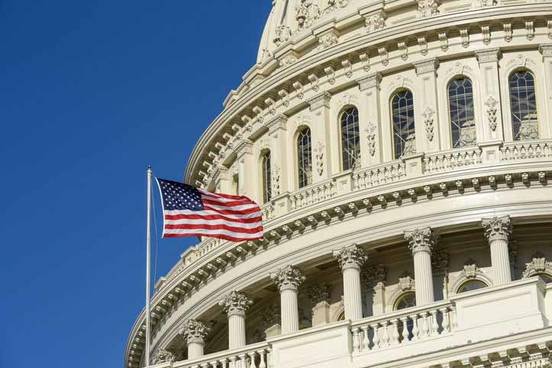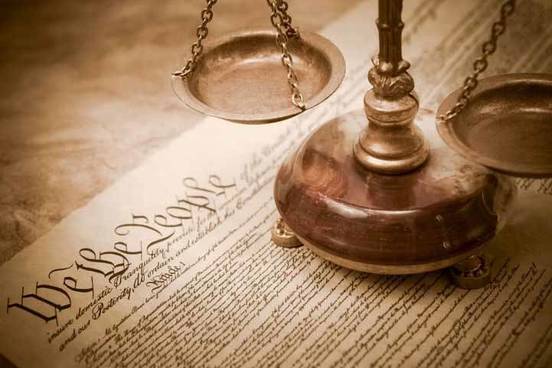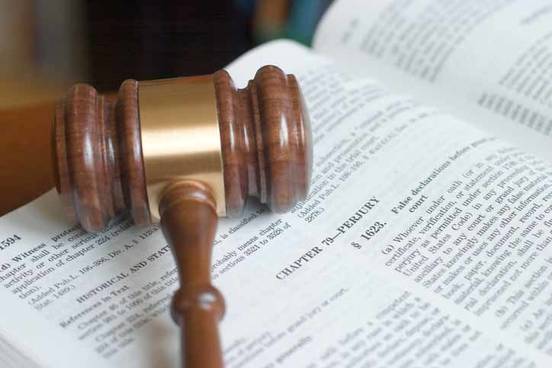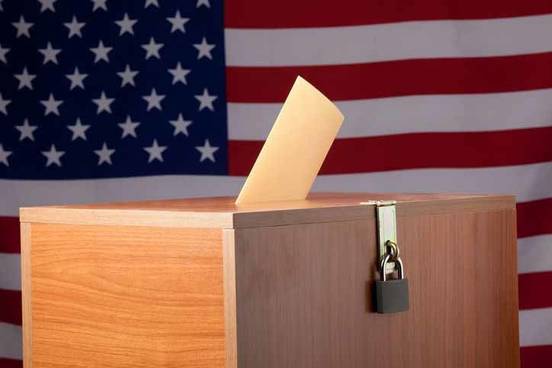
Impeachment
Definition - a calling to account for some high crime or offense before a competent tribunal; especially, the arraignment (as of a public official) for misconduct while in office
Impeachment has a variety of closely related meanings in addition to the definition provided above. These include obsolete senses (such as “hindrance, obstruction” and “injury or damage”) and broadened ones (such as “conviction of misconduct and usually removal of office”). The legal sense in which impeachment is applied to governmental proceedings in the United States typically refers to a step in the process of potentially removing an official from office, and does not describe the actual removal.
The relevant section of the United States Constitution (Article 2, Section 4) states that “The President, Vice President and all civil Officers of the United States, shall be removed from Office on Impeachment for, and Conviction of, Treason, Bribery, or other high Crimes and Misdemeanors.” Impeach may function as both a verb and a noun (the noun sense, meaning “charge, impeachment”) is now obsolete. The adjective, should you be looking for one, is impeachable (“capable of being impeached”).
And as to the Question, Whether an House of Parliament can commit Treason? If they depart from that Allegiance which they have sworn, at their first meeting, they are impeachable for it.
— Henry Vane, The tryal of Sir Henry Vane, 1662

Treason
Definition - the offense of attempting by overt acts to overthrow the government of the state to which the offender owes allegiance or to kill or personally injure the sovereign or the sovereign's family
Treason, the first offense in the U. S. Constitution for which one may be impeached, came into English in the 13th century, initially with the meaning of “treachery, the betrayal of a trust.” The word can be traced to the Latin tradere, meaning “to hand over, betray.”
Then, good Gall, thus quod I, what shew of reason
Mov'd this unnaturall traitour work such treason?
— Henry Adamson, The muses threnodie, or, mirthfull mournings, 1638

Bribery
Definition - the act or practice of giving or taking a bribe
Bribery, the second impeachable offense in the U. S. Constitution, comes from Middle English (in which it referred to something stolen); prior to this it came from the Anglo-French, in which it meant “piece of bread given to a beggar, scrap.”
Someone who is capable of being bribed is bribable; one who does the bribing is a briber; and the person being bribed may be referred to as the bribee.
The briber is, therefore, completely at the mercy of the bribee.
—The Manchester Guardian (Manchester, Eng.), 2 Aug. 1837

High Crimes and Misdemeanors
The third impeachable offense in the U.S. Constitution is high crimes and misdemeanors. High crime is defined as “a crime of infamous nature contrary to public morality but not technically constituting a felony; specifically, an offense that the U.S. Senate deems to constitute an adequate ground for removal of the president, vice president, or any civil officer as a person unfit to hold public office and deserving of impeachment. A misdemeanor is “a crime less serious than a felony.”
“Crimes and misdemeanors” was used in English law since the 14th century, and was among the fixed phrases using synonymous terms or terms of art found in parliamentary and legal language at the time of the American Revolution (others include “rules and regulations” and “emoluments and salaries”). It can be very difficult to distinguish between any of these pairs of words, and their frequent use together renders them less technical in today’s highly specific legal vocabulary. “High crimes” (and “high misdemeanors”) refer to serious or grave crimes committed by those with some office or rank, and was used in the language describing impeachment proceedings of members of the British Parliament in the 18th century.
The difficulty is certainly not lessened by the distinction taken between high crimes & misdemeanors, and minor offences.
— James Madison, Letter to Tench Coxe (Founders Online), 17 Jan. 1821

Suborn
Definition - to induce secretly to do an unlawful thing
In addition to the definition above suborn may also mean “to induce to commit perjury” and “to obtain (perjured testimony) from a witness.” The word comes from the Latin subornare, which has the literal meaning of "to secretly furnish or equip."
Thus in one of India’s chief cities a Jain money lender, whose religion forbids him to countenance the taking of animal life, was lately found to have suborned the official ratcatcher, who for goodly bribe gave him the captured rats, which that pious man joyfully released.
—Buffalo Courier (Buffalo, NY), 29 Jun 1924

Perjury
Definition - the voluntary violation of an oath or vow either by swearing to what is untrue or by omission to do what has been promised under oath : false swearing
Perjury is another fine legal term from Latin, perjurare. The Latin prefix per- has a number of possible meanings, but in this case means “detrimentally, for the worse”; the second portion of perjurare is jurare (“to swear”), which also is a root of such words as abjure, conjure, and nonjuring (“not swearing allegiance”). The adverb form is perjuriously.
On the other hand, it is quite as sure that the false administration of a government theoretically free, which acknowledges the rights of the people and yet continually treads them under foot; which swears to save and perjuriously works to destroy; which receives and promises to execute a most sacred trust according to terms prescribed with unmistakable clearness and then dishonestly breaks the engagement—such a government, so conducted, is an unspeakable curse.
—Detroit Free Press, 24 Feb. 1880

Obstruction of Justice
Definition - the crime or act of willfully interfering with the process of justice and law especially by influencing, threatening, harming, or impeding a witness, potential witness, juror, or judicial or legal officer or by furnishing false information in or otherwise impeding an investigation or legal process
Obstruction of justice covers a wide range of potential misdeeds. Such charges are often brought against a person who is believed to have lied to investigators or prosecutors in criminal cases. Obstruction of justice charges (of both the criminal and non-criminal variety) have played a notable part in several high profile political scandals over the years: the Judiciary Committee of the House of Representatives recommended this charge (along with two others) against President Nixon in 1974, and President Clinton was impeached and tried on this charge (along with perjury) in 1998.
Ike Rumsey and two sons, and Ans. packer, charged with the obstruction of justice, by running off a complaining witness in an assault and battery case, have waived examination and given bail to appear for trial at the February term of the Circuit Court.
—Detroit Free Press, 17 Jan. 1895

Supermajority
Definition - a majority (such as two-thirds or three-fifths) that is greater than a simple majority
Legislative votes in the United States Senate are decided by a simple majority vote. However, there are a number of other matters for which this body requires a supermajority. Many of these, including voting to convict on impeachment, require a majority of two-thirds of the members voting.
Of their super-majority how much do the Republican brethren expect to retain?
— The New York Times, 19 Sept. 1922

Corruptionist
Definition - one who practices or defends corruption especially in politics
Corruptionist is not a common word, and you are unlikely to encounter it in coverage of impeachment proceedings. However, given that impeachments tend often to focus on alleged corruption in political matters it may prove useful to know. Should you prefer a slightly shorter synonym, highbinder also may refer to a corrupt politician.
These are the men, these are the main supporters of the Ministry, and the polluters of society, against whom the resentment of elections should be manifested, even more so than against the prominent corruptionists.
— The Examiner (London, Eng.), 8 Jul. 1810Boodlers in City Hall Gang System on Run as Mayor Hits Highbinders
— (headline) The Detroit Free Press, 2 Nov. 1912

Maladministration
Definition - corrupt or incompetent administration (as of a public office)
As with corruptionist, maladministration is somewhat obscure, and also has some equally obscure synonyms. Sharing a prefix, malversation means “misbehavior and especially corruption in an office, trust, or commission,” and jobbery means “the act or practice of disposing of (as by political intrigue); corruption in public office.”
When the Framers were working out language in the late 18th Century, they considered giving Congress the power to impeach for “maladministration,” but that word did not make the cut, and for good reason; it was too general.
— Dan Rodricks, The Baltimore Sun, 23 Jun. 2019





